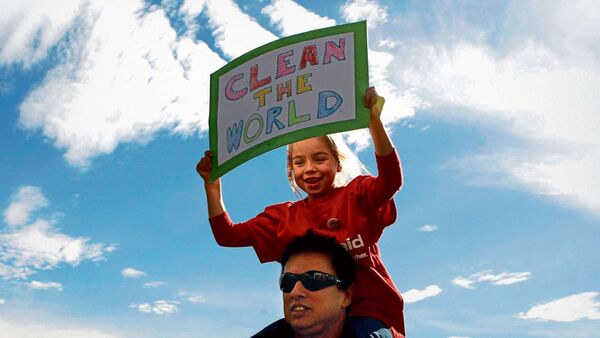SUMMARY
Rich nations must fulfil their promises even as carbon markets are pressed into service and greater corporate accountability is demanded. Dedicated climate institutions and need-based disbursal of funds could help the cause too.
As the world gathers for CoP-28 in the UAE, world leaders will need to demonstrate leadership and diplomacy to accelerate global climate action. This must be done in the context of the pressing realities of climate change, economic cycles and current geopolitics. My recommendations on what they should do are below:
Greater mitigation commitments by developed countries: The carbon budget to limit global warming to 1.5° Celsius was last estimated in 2020. Three years of human-induced emissions, along with improved scientific methods, have substantially reduced the remaining carbon budget. This reality underscores the urgency of immediate and aggressive climate action on a policy level by all countries. India and other developing nations should continue to advocate that developed nations enhance their mitigation commitments until 2030 in alignment with the 1.5° target. This involves earlier peaking of emissions and a steeper decline, thus leaving more space in the remaining carbon budget for developing countries.
Aim for accelerated timelines for debtstressed countries: More than a third of the world's countries, including our neighbours like Nepal, Bangladesh and Sri Lanka, are grappling with debt stress. Meanwhile, climate-related damages are escalating, adding to the challenges these nations face. There is a risk of geopolitical forces influencing outcomes, such as Sri Lanka ceding a port to China and China's increasing involvement in Nepal's infrastructure projects. These are likely to escalate geopolitical tensions, including in India's zone of influence. Building on the leadership demonstrated at the G20 summit, global leaders should continue to push for accelerated timelines in support of debt-stressed countries. These countries need financial assistance to mitigate the impacts of climate change and pursue sustainable development.
Strengthen momentum on corporate accountability and transparency: Despite being a pressing concern at previous CoPs and the recent report of a high-level expert group appointed by the UN Secretary General, the pressure on corporations to reduce emissions has not significantly increased on a global scale. Holding companies accountable is critical for achieving climate goals. Additionally, by promoting a coordinated approach to corporate decarbonization through international bodies like the UNFCCC, or in collaboration with a select group of nations, India can set an example and encourage others to enhance corporate accountability and transparency in their decarbonization strategies. This proactive stance will be instrumental in driving global efforts towards a more sustainable future.
Strive for order in the carbon market: With no one governing carbon offset and removal frameworks, carbon markets have been in turmoil of late. Despite being potentially effective tools to reduce emissions, several projects are facing revenue and investment uncertainties due to recent instances of faulty credits and collapsed mega projects. The EU has recently made progress on carbon removal frameworks and the Article 6.4 Supervisory Body under the UNFCC has recently agreed on guidance for crediting methodologies. These will help resolve the turmoil in carbon markets to some extent. India and other emerging economies could soon be among the biggest players in the global carbon market, and they should proactively work with other countries to advance to the next steps: approval of this guidance at the latest CoP to turn them into rules, and a wider consensus among countries on frameworks for carbon removal.
Capitalize the Loss and Damage Fund and accelerate reforms of multilateral banks (MDBs): The Loss and Damage Fund, a key outcome of the previous CoP, will be hosted for an interim period at the World Bank. At the same time, progress has begun on reforming MDBs, including the World Bank itself, to enable the required capital mobilization for climate action. We know the process of MDB reforms is expected to be long, marked by geopolitical intricacies and uncertainties. Over-dependence on these resources for accelerated action should be cautioned against. Developing economies must, however, continue to press developed countries to put resources into MDBs and the Loss and Damage Fund to meet the financial needs of the next decade at least.
Explore dedicated climate institutions: An idea to accelerate climate action in the medium-term could be to explore new institutions at the international and domestic levels—what I call Climate Bretton Woods entities. These may include three types of institutions: say, a Global UN for Climate Change to speed up political and corporate action; a Global Climate Bank whose investments would catalyse innovation in areas that are critical for climate outcomes; and Climate Central Banks for countries that will focus on managing emissions within a certain range. If their analyses demonstrate chances of higher than expected emissions, they should be empowered to limit credit or input flows to certain sectors or impose taxes/ surcharges to provide price signals. They would need to work closely with elected governments but be independent of them and perhaps answer directly to parliaments and congresses.



